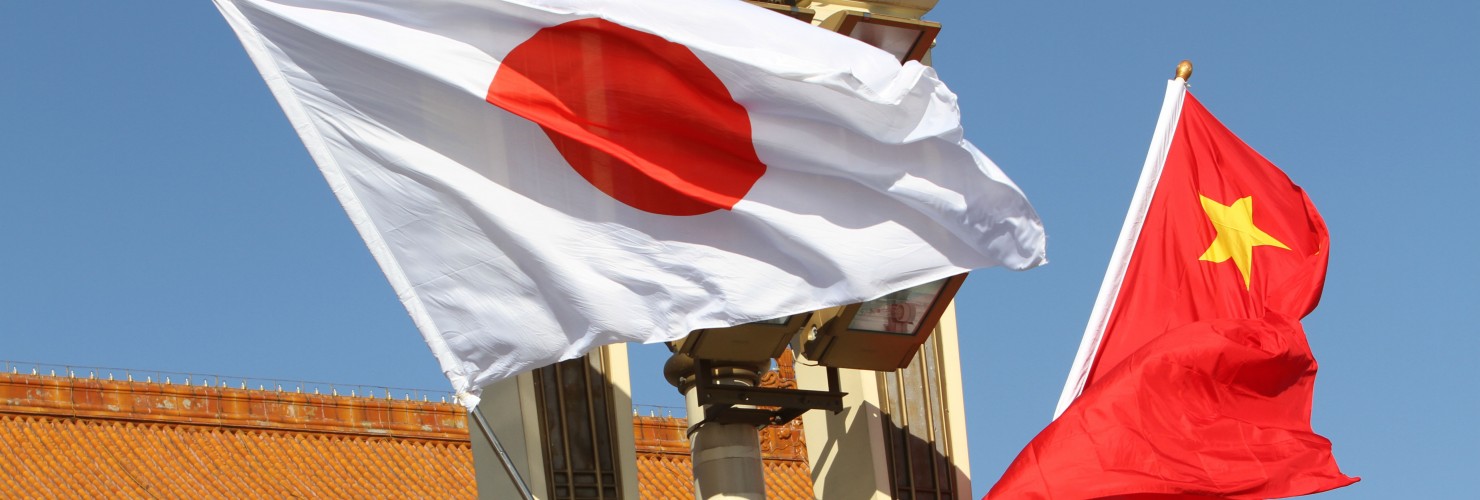

Beijing’s revealing silence on Japan's economic security legislation
Aya Adachi says the muted reaction to Japan’s new economic-security law shows there are other ways of standing up to China than the USA’s politically more combative approach.
Known for thin-skinned reactions to small provocations, Beijing has observed an official silence about Japan’s new economic-security legislation – a sign that it knows it can't push its international assertiveness too far. Even the Chinese Communist Party’s Global Times newspaper has refrained from lashing out at a law which it acknowledges is meant to protect Japan from economic coercion by China. “Japan should not become a geopolitical tool for other countries,” it warned, before emphasizing the 50th anniversary of normalized diplomatic relations – and the importance of maintaining economic cooperation.
Such muted reactions to Japan’s Diet passing the law on May 11 show that Beijing regards a workable economic relationship with Japan as crucial, regardless of Tokyo’s alignment with an increasingly strident USA. It is not the first time that Beijing has accepted Japan taking protective measures. Japan in 2018 quietly but resolutely excluded Chinese components from 5G mobile-telephone infrastructure. In contrast to similar – and more loudly debated – decisions in France, Germany and the UK, it did not provoke a public response by Beijing.
In both instances, Beijing seemed to be aware that it needed to be pragmatic towards Japan – it could neither exert pressure to influence Japan’s decisions, nor could it afford to risk damage in other areas and add further stress to an already fraught politically relationship. What was long a mutually beneficial relationship based on “hot economics” and “cold politics,” changed in 2010 and 2012 when political altercations on the Senkaku-Diaoyu Islands resulted in a number of economic coercion measures against Japan and its companies.
Since then, more obvious political tensions between the two countries and competition over economic influence in Asia have blurred this once conveniently compartmentalized relationship. Japan’s recent moves point to a paradigm shift in Tokyo – economic ties with China are now only imaginable when flanked by political measures that create a safety net around them. Other middle powers should note that Beijing seems prone to tolerating nuanced measures that introduce a base layer of safety, while maintaining economic ties.
Japan’s economic security law arrives at a time when Japan is still a key source of technology for and the fourth largest investor in China. While Beijing remains intent on its long-term ambition to achieve self-sufficiency through industrial upgrading and building innovation capacity, it is too early to risk its relationship with Japan. While it may not approve of Japan’s changing stance, China appears unwilling to escalate differences as long as corporate ties are good enough to maintain Chinese companies’ access to technology. Annoying or galling as it may be, Japan’s legislation allows China to continue pursuing its economic interests.
Tokyo’s efforts to mitigate economic-security risks predate recent pandemic-induced supply shortages and Russia’s invasion of Ukraine. They can be traced back to a growing realization that the country needs to modify its high degree of economic interdependence with China. Prime Minister Fumio Kishida had widely been considered a dove in comparison to Shinzo Abe. But he quickly brought his predecessors’ initiative over the finish line given a nation-wide recognition that a pragmatic approach towards China had become an imperative.
Yet fears of damaging economic ties with China loomed large in the legislative process. In 2020, China was the destination of 22 percent of Japan’s total exports and 29 percent of its investments in Asia. Given such exposure, Japan’s lawmakers chose their word carefully. The law does not mention China specifically, nor did politicians and officials ever mention it when discussing the bill. Disasters, pandemics, wars and geopolitical tensions are cited as motivation instead. The broad concept of economic security helped politicians and business representatives – typically scared of openly talking about China – to support the initiative.
Yet actions speak louder than words. The law unmistakably addresses concerns about China. It includes wide-ranging measures to improve supply-chain stability, introduce cyber-security requirements for companies, monitor equipment procurement in 14 core infrastructure industries, fund public-private cooperation to develop key technologies considered important for economic security, and establish a system of secret patents kept within Japan to ensure that technological breakthroughs are not used by other countries for military ends.
Many of these measures address concerns directly associated with China. But they also point towards a more balanced and defensive middle way of dealing with economic risks compared to the more confrontational US approach. (Two weeks after the Diet voted, Japan’s Foreign Ministry established a new China strategy team to coordinate diplomatic polices and build a “constructive relationship” with Beijing, further highlighting Tokyo’s multifaceted approach.) Whereas US politicians have long been combative when debating China, their counterparts in Japan have remained more discreet. In doing so, they appear to have made Beijing quietly accept measures Japan adopted specifically because of China.

